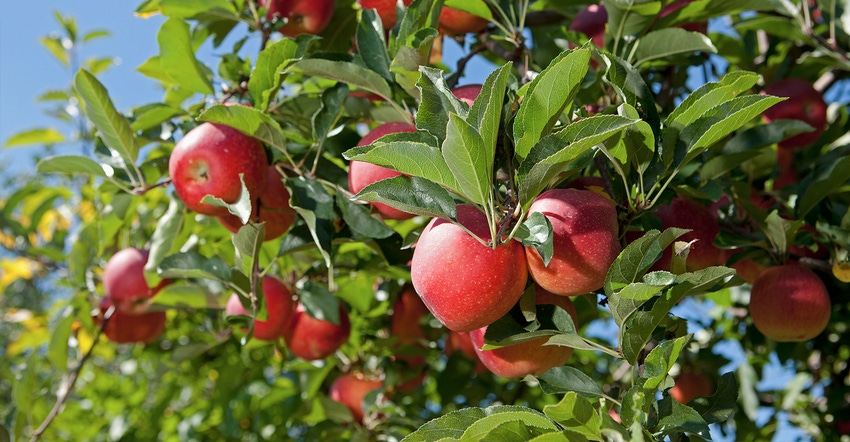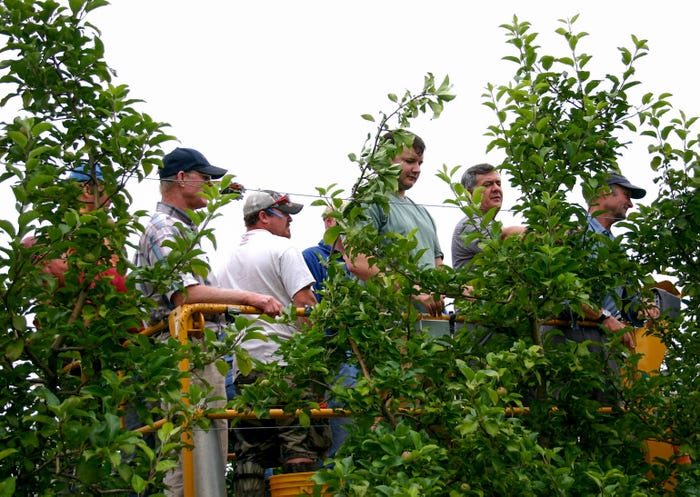September 11, 2018

Growers in New York are providing data to help Cornell University horticultural researchers refine computer modeling designed to more precisely apply orchard irrigation and thinning practices.
The on-farm orchard trials at the northern New York orchards have evaluated water management. The Cornell team estimates that in some seasons a lack of irrigation can lead to small fruit and an economic loss of between $3,850 and $6,809 per 2.5 acres of orchard, depending on the density of the trees. Losses can be higher for late-season varieties that require a longer growing season.
A proper water supply that limits or eliminates drought stress on trees is essential to maximum apple size at any given crop load. Growers can improve orchards yields by following computer modeling to precisely irrigate their crop on a weekly basis.
The on-farm trials use computer modeling to guide precisely when growers need to thin tree buds to reach desired crop load.
For each variety of apple, individual orchard and grower, there is an optimum number of fruits per tree to achieve the best yield and desired fruit size and quality to bring the highest economic return.
In recent years, the focus of the regional trials has been on production of the popular Honeycrisp and Gala apples.
More precisely targeting thinning applications can reduce orchard costs and enhance the use of pollinator-friendly treatments.
To encourage fruit size and quality, the modeling also directs pruning by hand to reduce competition among flowers and fruitlets.
 THINNING WORKSHOP: North Country apple growers at an orchard thinning workshop with Cornell horticulture professor Terence L. Robinson (second from right).
THINNING WORKSHOP: North Country apple growers at an orchard thinning workshop with Cornell horticulture professor Terence L. Robinson (second from right).

Three growers participating in the Northern New York Agricultural Development Program-funded research are among 20 farmers contributing to a statewide project to develop recommendations for precision orchard management practices. Components of the modeling have been developed at Cornell University and the University of Massachusetts.
The program provided new funding to continue the research this year. The fall harvest will add more data to help refine modeling accuracy and sensitivity, particularly to extreme weather conditions that can include sudden drops in temperature, extended cold or rainy seasons, hail, and other challenges that can damage apple crops.
Funding for the Northern New York Agricultural Development Program is supported by the New York State Senate and administered by the New York State Department of Agriculture and Markets. For more information, visit nnyagdev.org.
Source: Northern New York Agricultural Development Program
You May Also Like




